Brown Sugar- Another way to add sweetness to your life!
So, you know how doctors and health experts often tell us that white sugar isn’t the best for our health? Overeating of it can make us gain weight and even put us at risk for diabetes. That’s why many people who want to lose weight avoid it.
But I hear many of you asking, “What about Brown Sugar? Is it any better?” Is brown sugar good for weight loss?
In this blog post, we will discuss whether brown sugar is a healthier choice. Ready to jump in? Let’s go!
Also read: How to Eat Soya Chunks for Weight Loss?
Table of Contents
What is Brown Sugar?
Brown sugar is a specific type of sucrose that gets its hue from molasses. Brown sugar contains 5% molasses in general, especially professionally made brown sugar. Yet, naturally occurring organic brown sugar includes several minerals and antioxidants, making it wholly nutritious and safe to consume.
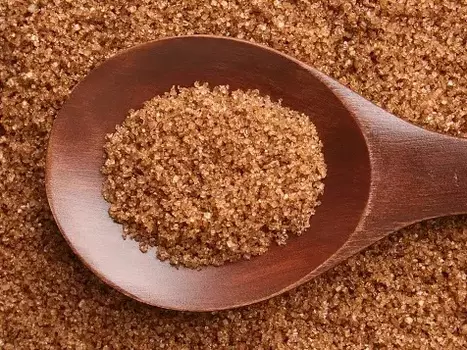
Brown sugar, like brown rice and whole-wheat bread, is in high demand. They also enhance the overall flavour of baked goods or sweets and provide several health advantages. Some believe that brown sugar is made from JaggeryJaggery, which is entirely incorrect.
Also read: Is Gumbo Good for Weight Loss?
In a matter of minutes, one can make your own brown sugar.
1 cup granulated sugar and 1 tablespoon molasses are all you need.
In a mixing basin, combine the white sugar and molasses. Stir with a wooden spoon or an electric mixer until well combined. To avoid drying out, keep brown sugar in an airtight container. Incorporate into your favourite dishes.
Nutritional Facts of Brown Sugar
Brown sugar, as opposed to white sugar, includes molasses. Molasses is the raw fluid from sugar extraction from cane or beets. It has somewhat higher nutritional value than white sugar due to the naturally occurring minerals in molasses.
Also read: Is Caprese Salad Good for Weight Loss?
The two most common types and forms of brown sugar are:
- Sticky brown sugar has a higher molasses percentage, which makes it denser and more humid.
- Free-flowing brown sugar comprises finely powdered sugars that do not adhere to one another and hence “flow” like white sugar.
Brown sugar has the following nutritional value per 100g () :
| Energy | 1,576 kJ (377 kcal) |
| Carbohydrates | 97.33 g |
| Sugars | 96.21 g |
| Dietary fibre | 0 g |
| Fat | 0 g |
| Protein | 0 g |
| Water | 1.77 g |
| Thiamine (Vit. B1) | 0.008 mg |
| Riboflavin (Vit. B2) | 0.007 mg |
| Niacin (Vit. B3) | 0.082 mg |
| Vitamin B6 | 0.026 mg |
| Folate (Vit. B9) | 1 microgram |
| Calcium | 85 mg |
| Iron | 1.91 mg |
| Magnesium | 29 mg |
| Phosphorus | 22 mg |
| Potassium | 346 mg |
| Sodium | 39 mg |
| Zinc | 0.18 mg |
Nutritional Value of White Sugar
Sugar is a simple, crystalline carbohydrate that occurs in various forms. The taste of all versions is sweet. Sucrose, sometimes known as table sugar, is derived from glucose and fructose. Glucose may be found in various carbs, including grains, fruits, and vegetables. Fructose is found in fruits, vegetables, and honey, whereas lactose is found in milk.
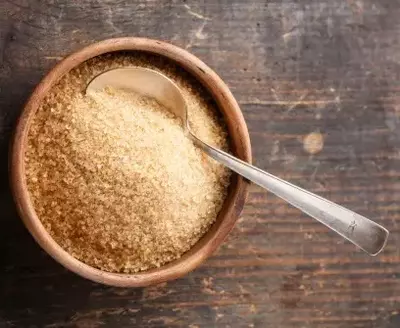
According to Medicalnewstoday, White sugar has the following nutritional value per 100 grams:
| Energy | 1,619 kilojoules (387 kilocalories) |
| Carbohydrates | 99.98 g |
| Sugars | 99.91 g |
| Dietary fiber | 0 g |
| Fat | 0 g |
| Protein | 0 g |
| Water | 0.03 g |
| Riboflavin (Vit. B2) | 0.019 milligrams (mg) |
| Calcium | 1 mg |
| Iron | 0.01 mg |
| Potassium | 2 mg (0 per cent) |
Is Brown Sugar Good for Weight Loss?
Brown sugar is a specific kind of sucrose that receives its colour from molasses. Brown sugar contains 5% molasses in general, especially professionally made brown sugar. Yet, naturally produced organic brown sugar includes several minerals and antioxidants, making it wholly nutritious and safe to consume.
Also read: Is Poha good for weight loss?
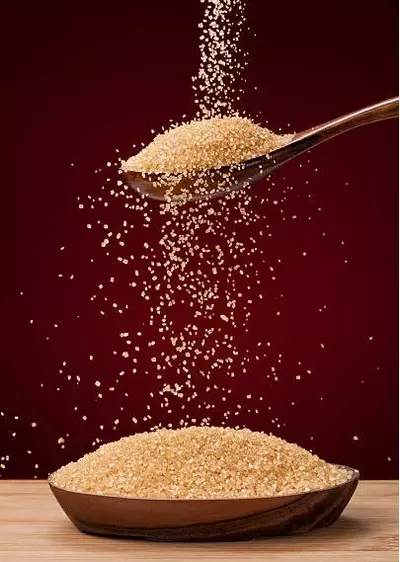
- Brown sugar, being low in calories, does not cause weight gain like white sugar. Thus, you may eat meals made with brown sugar. However, because this is a sort of sugar, it is best to restrict your intake to keep healthy and fit.
- As compared to white sugar, brown sugar has fewer calories. The sugar contains molasses, which stimulates the body’s metabolism.
- Brown sugar also provides vitamins that help the body stay fit. Brown sugar can be included in one’s diet but should not be consumed in large quantities.
Is White Sugar Good for Weight Loss?
Sugar is among the most dangerous things you can put in your body. It causes obesity, diabetes, cancer, and heart disease, among other health problems. Sugar is natural because it is made from sugar cane but has several drawbacks.
Also read: Is Muenster cheese good for weight loss?
- Regular white sugar has a lot of calories, which might contribute to weight gain.
- They do not include enough fibre or protein to fulfil you completely. It is hazardous for diabetic individuals since it raises blood sugar levels.
- White sugar is high in empty calories. A diet heavy in added sugar is high in fructose, which causes individuals to feel hungry. High fructose consumption leads to leptin resistance, which regulates appetite and leads to obesity.
Is Brown Sugar Really Better than White Sugar?
They are similar because white and brown sugar come from the same plant, sugarcane or sugar beetroot.
- The primary dietary variation between the two is that brown sugar has slightly more calcium, iron, and potassium.
- Total sugars in a product comprise natural sugars found in foods such as dairy products and fruit and any extra sugars added to meals and beverages throughout preparation and consumption. White and brown sugars are examples of added sugars.
- The choice between white and brown sugar is a matter of personal taste, as the significant distinctions between the two are flavour and colour.
- Although brown sugar includes more nutrients than white sugar, the amounts of these elements are so minute that they are ineffective for health.
Importantly, sugar is regarded to play a role in the obesity pandemic and is a significant cause of illnesses such as type 2 diabetes and heart disease.
Health Benefits of White Sugar
In addition to such problems, it also has some health benefits. Sugar, while it might induce weight gain, is essential for optimal health. Sugar is required by the body for energy and strength. The following are some of the health advantages of white sugar:
Also read: Are Banana and Oats Good For Weight Loss?
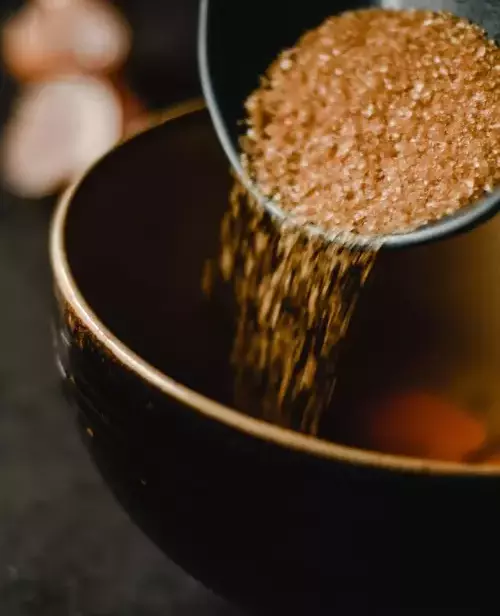
- Provides Power
Sugar is an excellent source of energy. As sugar enters the bloodstream, it turns to glucose and is received by cells that help create points. Sugar cubes are a great source of instant energy. Sugar cubes are carried by athletes to supply them with quick energy.
- Reduces Blood Pressure
Patients with low blood pressure should consume sugar cubes, which will help them rapidly raise their blood pressure. You should consume sugar if you have low blood pressure.
- People with Diabetes
Diabetes sufferers’ blood sugar levels fluctuate. If one fails to consume meals for an extended time, the body wants raw sugar to re-energize.
- Depression should be Treated
Sugar is an excellent antidepressant. Chocolates assist to lift one’s spirits and make one feel incredible.
- Brain Operations
In the lack of sugar, the brain could not operate correctly. Blackout is a disorder caused by an insufficient supply of sugar to the brain. It should be used in moderation because excessive doses are dangerous.
Drawbacks of White Sugar
Sugar intake is discouraged by health authorities; thus, it must be detrimental to your health. Refined sugars are to blame for many health issues, including obesity and extra belly fat, which constitute risk factors for more severe disorders like diabetes and heart disease. Refined sugars, particularly high-fructose corn syrup, may produce leptin resistance. This hormone signals appetite and satiety, explaining the relationship between refined sugar and obesity. It can make you acquire weight.
Obesity rates are growing globally, and data shows that added sugar, commonly found in sugar-sweetened drinks, is a key factor in obesity. Fructose, the main form of sugar in starchy foods, boosts your appetite and craving for food more than glucose. Consuming excessive amounts of added sugar, particularly from sugary beverages, increases your risk of becoming overweight and may cause visceral fat to accumulate.
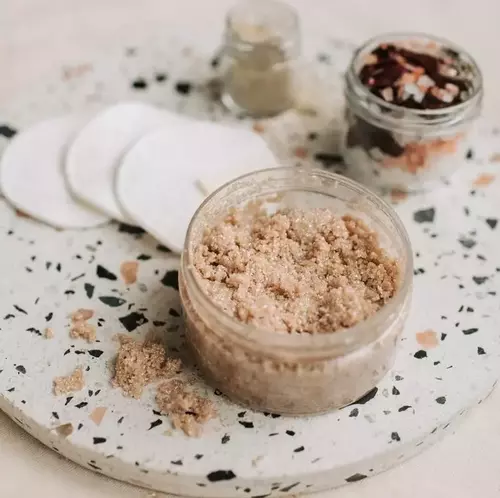
- Acne is associated with Sugar
A diet heavy in refined carbohydrates, especially sugary meals and drinks, has been linked to an increased risk of acne development.
Higher glycemic index foods, such as refined sweets, boost your blood sugar faster than lower glycemic index meals.
High-sugar diets can increase acne risk as they can increase androgen secretion, oil production, and inflammation.
- Raises your chances of developing type 2 Diabetes
Diabetes is a primary cause of death and shortens life expectancy. Its incidence has risen in the last 30 years, and estimates indicate it will continue to increase.
Obesity, frequently induced by increased sugar intake, is regarded as the most significant risk factor for diabetes.
- May Raise your Cancer Risk
Excess sugar consumption may raise your chance of acquiring some malignancies.
First, a diet high in sugary foods and beverages can result in being overweight, significantly increasing your risk of cancer.
Sugary diets can create inflammation in the body. They may lead to insulin resistance, raising the risk of cancer.
Replacement of Sugar
Added sugar is one of the most troublesome elements in the contemporary diet, connected to significant ailments such as obesity, diabetes, and heart disease.
Thankfully, healthy sugar substitutes may add sweetness to your diet. Simple sugars are not only more nutritious than refined sugar, but they also taste better.
Also read: Are Radishes Good for Weight Loss?
5 finest sugar substitutes are:
(1) Maple Syrup
Maple syrup is created from maple tree sap. It includes antioxidants and minerals, including calcium, potassium, zinc, iron, and manganese.
Maple syrup, like honey, has some health advantages but is still heavy in sugar. While it is a healthier alternative to refined sugar, it is best avoided in excess.
(2) Stevia
Stevia is an organic sweetener derived from the leaves of the Stevia rebaudiana shrub, which grows in South America.
This sugar replacement can be distinguished from stevioside and rebaudioside A, which have no calories and are potentially sweeter than sugar.
Because the leaves of Stevia rebaudiana are high in nutrients, stevia has been linked to reducing blood pressure and blood sugar levels.
(3) Coconut Nectar
Coconut sugar is made from the sap of the coconut palm. It contains minerals such as iron, zinc, calcium, and potassium.
Also, it has a lower glycemic index than sugar, which might be due to the presence of inulin, a form of soluble dietary fibre.
(4) Honey
Honeybee honey is high in nutrients and minerals, providing various health advantages.
Antioxidant qualities of phenolic acids and flavonoids can help protect against inflammation, diabetes, heart disease, and cancer.
Though honey has several health advantages, it still includes fructose and should be used in moderation.
Jaggery
Jaggery is a traditional Indian sweetener prepared from sugarcane that is said to be a healthier alternative to sugar. Every natural mineral salt is kept in the jaggery production process, which does not use any chemical agents. When compared to sugar, Jaggery offers several health benefits.
Jaggery is high in iron and beneficial to anaemic patients, as it raises haemoglobin levels in the blood.
Conclusion
I hope that by now, this article has given you information, “Is brown sugar good for weight loss or not?”
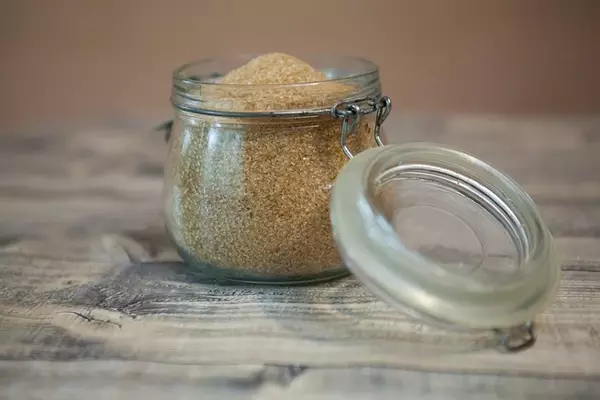
While brown and white sugar contributes little nutritious benefit to your diet, you may replace a better alternative for them. Sugar is also essential for providing energy in the form of glucose.
But, we occasionally ingest visible sugar in our teas and coffees and unseen sugar in processed or baked goods and fizzy drinks. Additionally, restrict your sugar intake and, over time, make wise substitutions to healthier choices for general health advantages.
Sugar and added sugars will likely be indicated on the nutrition label. Total sugars in a product comprise naturally occurring sugars found in foods such as dairy products and fruit, as well as any extra sugars added to meals and beverages during food processing.
White and brown sugars are examples of added sugars. Sugar is extremely damaging to the teeth and can lead to tooth decay and gum disease.
People with diabetes can ingest sugar, although it is suggested that they take no more than 25 g. This is half the dose indicated for those who do not have diabetes.
Also read: Does Ginger Help With Weight Loss?
Frequently Asked Questons
Q1: Is Jaggery better than sugar?
Ans: Indeed, Jaggery is frequently viewed as a healthier substitute.
Q2: How is White Sugar Made?
Ans: White sugar is sucrose derived from sugar cane. Crushing the canes releases the juice, which is then processed with lime juice to eliminate dirt and debris from the manual harvesting. The mixture is then made into syrup by boiling.
Q3: How is Brown Sugar Made?
Ans: Brown sugar is manufactured by adding molasses syrup to boiling sugar crystals produced during sugar refining. It can also be made by spraying white granulated sugar with molasses.
